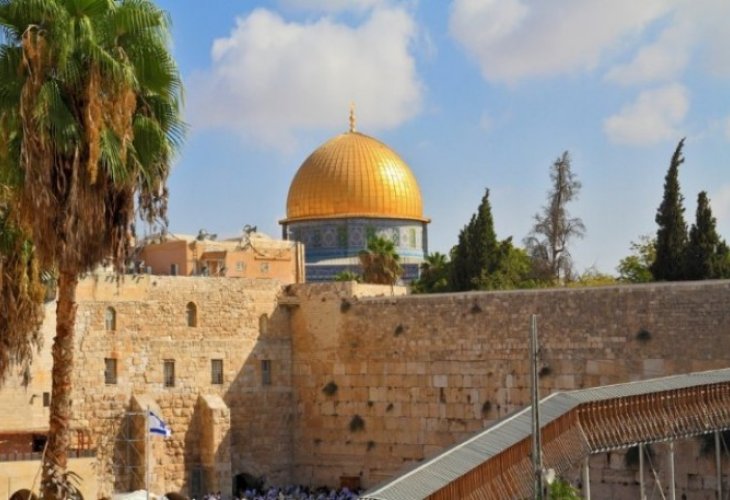Facts in Judaism
Can Ishmael Shape Jewish History?
A compelling exploration of the spiritual significance of the Ishmael exile and its connection to the final redemption

For generations, Jewish Sages have spoken about a unique and tumultuous chapter in Jewish history—the final exile under the dominance of Ishmael, a period that precedes the onset of the final redemption. Drawing from midrashic sources, Kabbalistic insights, and prophetic writings, a picture emerges of the spiritual and geopolitical upheaval that characterizes this period.
The Exile of Ishmael: A Prelude to Salvation
Pirkei Derabbi Eliezer (end of chapter 30) teaches that “Three wars of confusion will the sons of Ishmael wage in the land at the end of days, and from there, the son of David will grow.” Similarly, the Rambam, in his Iggeret Teiman (Letter to Yemen), writes that the rise of Edom and Ishmael and their dominion over the world is the unmistakable sign that the coming of Mashiach is near. He emphasizes that this progression is “certain and irreversible.”
The Purpose of the Ishmaelite Exile
The expression “and from them will the son of David sprout” teaches that this exile doesn't only signal the timing of the redemption, but it is also a catalyst for it. The actions and spiritual responses of the Jewish people during the Ishmaelite exile will trigger the arrival of Mashiach. The hardships inflicted by Ishmael are designed to awaken Israel’s outcry, which in turn reaches the heavens and hastens redemption.
The Identity of Ishmael: Divine Intention and Historical Role
The Kabbalist Rabbi Chaim Vital explains that Psalm 124, attributed to King David, prophetically describes the exile under Ishmael. The verse, “Had it not been for Hashem who was with us when man rose against us,” refers to Ishmael, who is described in Genesis as a pere adam (a wild man). As a son of Abraham, Ishmael possesses ancestral merit and the covenant of circumcision—but his spiritual legacy is fraught with conflict.
According to Pirkei deRabbi Eliezer (chapter 32), six individuals were named by God before birth, among them Ishmael, whose name was Divinely given to reflect his purpose: “Hashem will hear” (Yishma-El). His name signals that God will listen to the cries of Israel suffering under his oppression.
Ishmael vs. Isaac: The Eternal Struggle for Legacy
Rashi comments that Ishmael contested Isaac’s inheritance, laying claim to the Land of Israel. On a fundamental level, the struggle between Ishmael and Isaac is about who is Abraham's successor and who lays claim to Abraham’s spiritual path. While Ishmael points to his circumcision at age 13 as a sign of greater devotion, Yitzchak responds that he was willing to give his entire life at God's commands, demonstrating the ultimate level of submission.
The core of Ishmael's ideological warfare is their claim to be Abraham’s true heirs. As they grow more devout in their beliefs, they also become more violent, especially with regard to control over the Land of Israel and Jerusalem. This mirrors the ancient enmity of Ishmael, who mocked and scorned Yitzchak and demanded the inheritance. The aggression and fanaticism of the Ishmaelites—often expressed as religious extremism—are seen as part of the final spiritual refinement of the Jewish people.
Ishmael as Hashem's Rod
This conflict, with all its pain, is the furnace in which the Jewish people are purified. Ishmael was created for the end of days, the period that immediately precedes the arrival of Mashiach. The na'aka (groan) of suffering Jews, brought about by Ishmael’s persecution, leads to teshuvah (repentance). This is Ishmael’s ultimate purpose: to serve as the rod that brings Israel to spiritual refinement. As their cries rise to heaven, Hashem listens—and from this darkness, redemption will bloom.
A Vision in the Midrash: The Final Danger Before Redemption
One of the allegories shared by Rabba bar Bar Chana seems to hint at our modern times. A massive sea creature with sand on its back and shrubbery growing from the sand is mistaken for dry land. When the creature moved, though, the people who sought shelter on it nearly drowned. Commentators, such as Rabbi Yaakov of Lisa, interpret this as a metaphor for Israel's temporary dominance over Ishmael in the end of days. When Israel lets its guard down, the danger resurfaces, nearly drowning them—until salvation arrives at the last moment.
A Call to Action: Our Role in the Redemption
We live in the very era foretold by our Sages—when Ishmael will oppress Israel, increasing pain until cries of desperation fill the heavens. Military might alone cannot defeat these spiritual foes, who only seem to grow stronger.
We must cleave to the service of God, intensify Torah study, and perform mitzvot with passion. This is our only recourse for overcoming Ishmael. Ultimately, the battle between us is a spiritual struggle, and the only way to overcome it is through spiritual means.
This article is based on a presentation by Rabbi Baruch Weissbecker in the Hebrew booklet "Yishma Kol Na'akat Ha'am Ve'ya'aneim."

